Navigating the post-interview process can be challenging, especially when it comes to delivering disappointing news. If you've recently conducted interviews and need to decline a candidate, crafting a thoughtful rejection letter is essential. This letter serves not only to communicate the decision but also to maintain a positive relationship for future opportunities. Want to explore how to write a rejection letter that is both professional and empathetic? Read on for helpful tips!
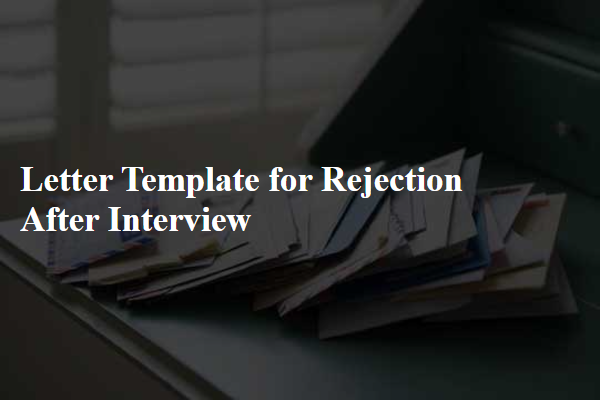
Professional tone
Thank you for your interest in the [Job Title] position at [Company Name]. We appreciate the time and effort you invested in the interview process and your desire to join our team. After careful consideration, we have decided to move forward with another candidate whose qualifications more closely align with our current needs. We encourage you to apply for future opportunities at [Company Name] as your skills and experience may be a great fit for other roles. We wish you the best in your job search and future professional endeavors.
Appreciation for time and effort
Thank you for your time and effort during the interview process for the [Job Title] position at [Company Name]. Your interest in our company and the insights you shared about your experiences were greatly appreciated. After careful consideration, we regret to inform you that we have chosen to move forward with another candidate who more closely aligns with our current needs. We encourage you to apply for future openings and wish you the best in your job search.
Feedback on interview performance
Job applicants often seek feedback after interviews to understand their performance better. Constructive feedback can highlight strengths and areas for improvement, enhancing future interview skills. Valid points could include communication skills, body language, technical knowledge, and cultural fit. Companies typically have a structured feedback process, involving HR teams analyzing interview notes and rating criteria. Providing specific examples from the interview can guide candidates effectively. Overall, feedback after interviews serves as a valuable tool for personal and professional development in competitive job markets.
Encouragement for future opportunities
The recent job interview for the Marketing Coordinator position at Acme Corporation highlighted the candidate's strong skill set and impressive experience, especially in social media management and analytics. Despite the candidacy being highly competitive, with over 100 applicants and several strong contenders showcasing expertise in digital marketing strategies, the decision ultimately favored another applicant whose background closer aligned with the company's immediate needs. Encouragement for future opportunities remains important; candidates are often urged to apply for future roles, as they may not only fit future openings but also benefit from networking events hosted by Acme Corporation, ensuring continued professional growth and connection.
Company contact information
Rejection letters are a professional way to inform candidates that they were not selected for a job position after an interview process. When crafting such a letter, it's important to maintain a respectful and considerate tone. For the company contact information, provide details like the company name, address, phone number, and email address. Example format: **Company Name: Absolute Innovations Inc.** **Address: 123 Business Lane, Suite 400** **City, State, Zip: Metropolis, NY 10001** **Phone: (123) 456-7890** **Email: hr@absoluteinnovations.com** This section helps ensure that the candidate has all the necessary information for any potential follow-up.

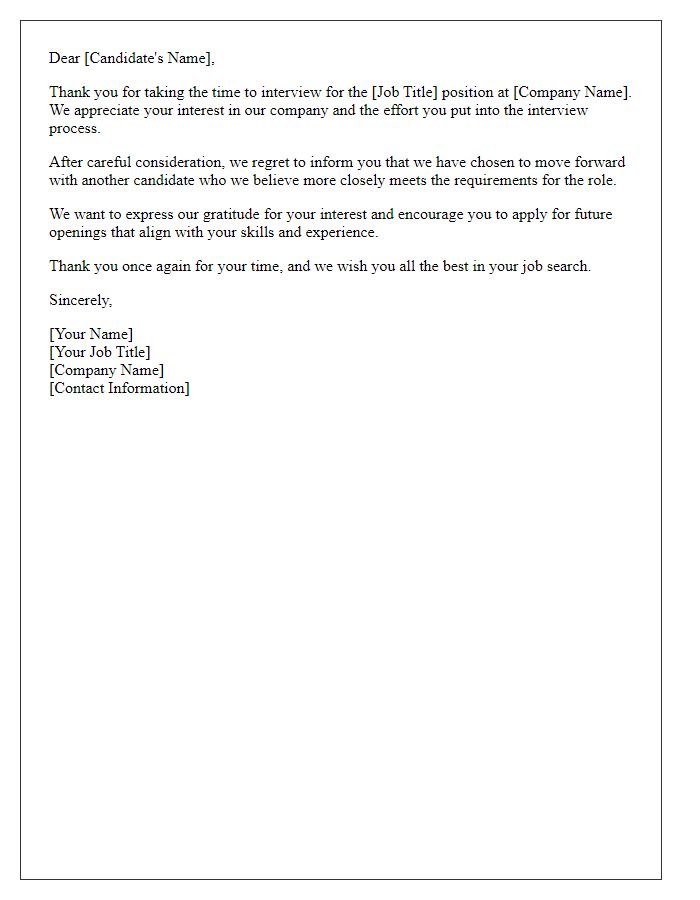
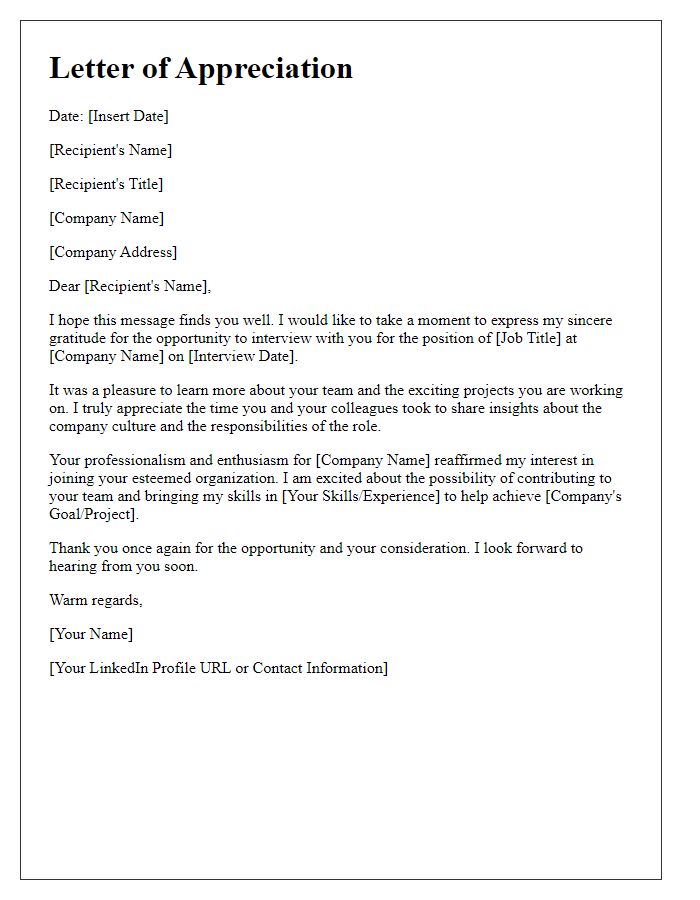
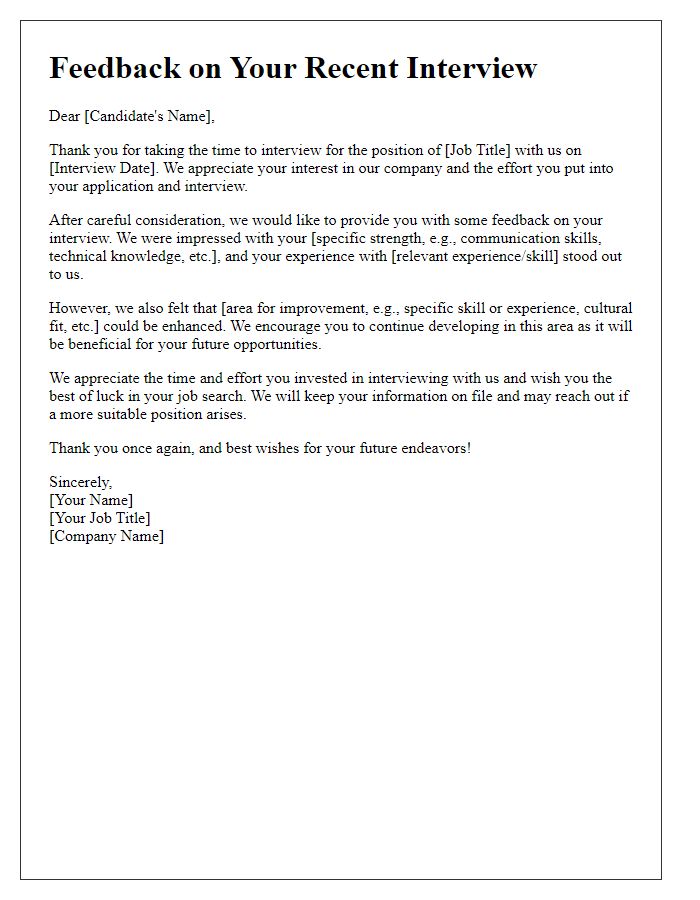
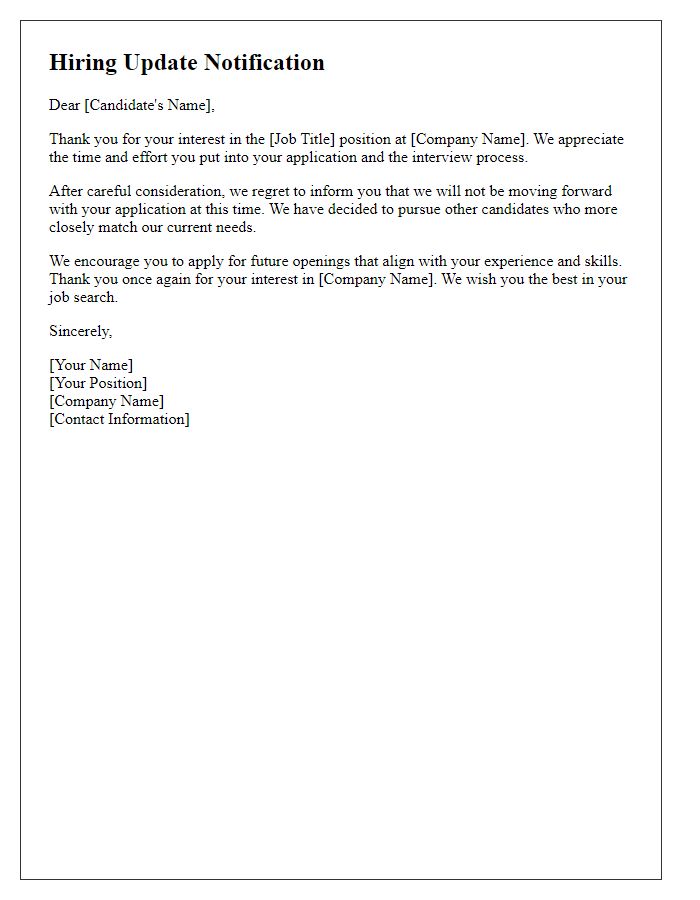
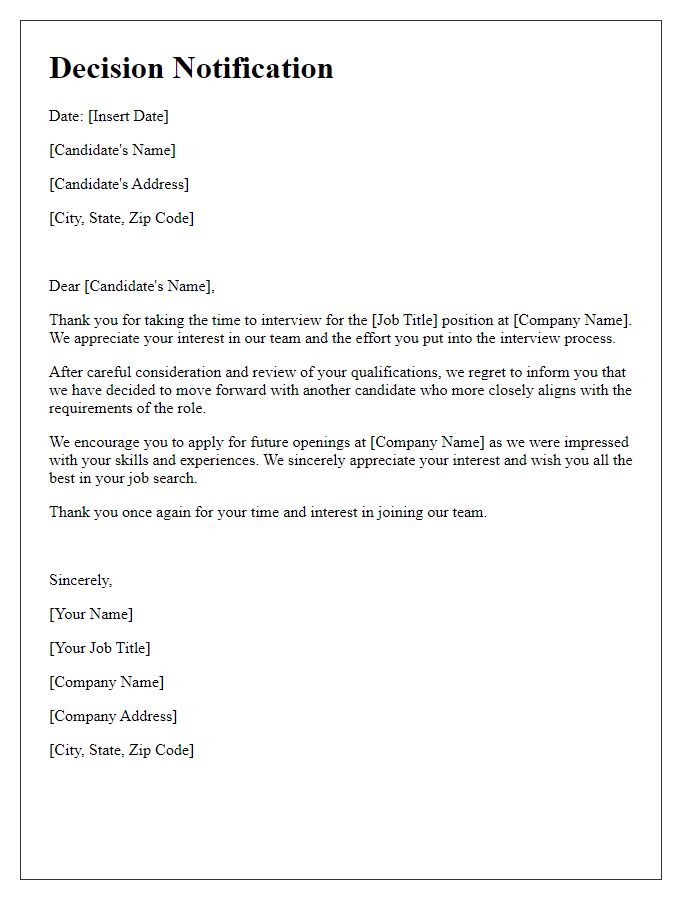
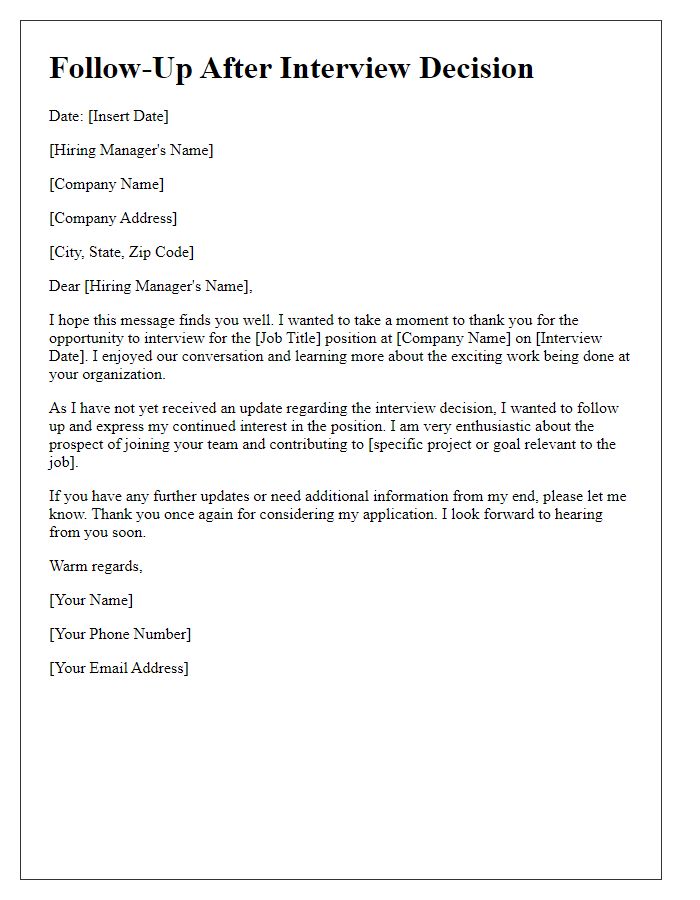
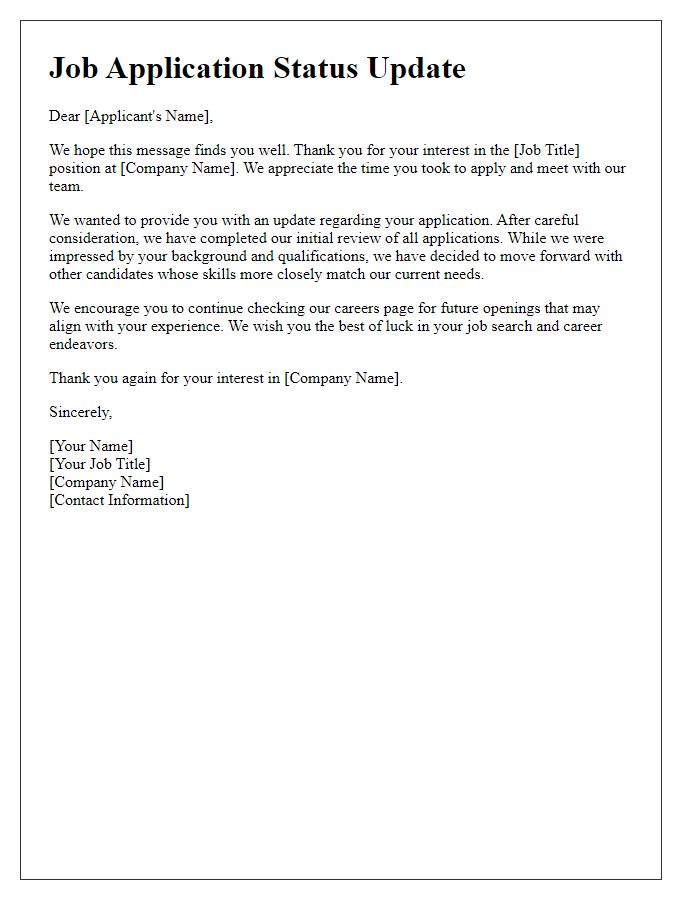
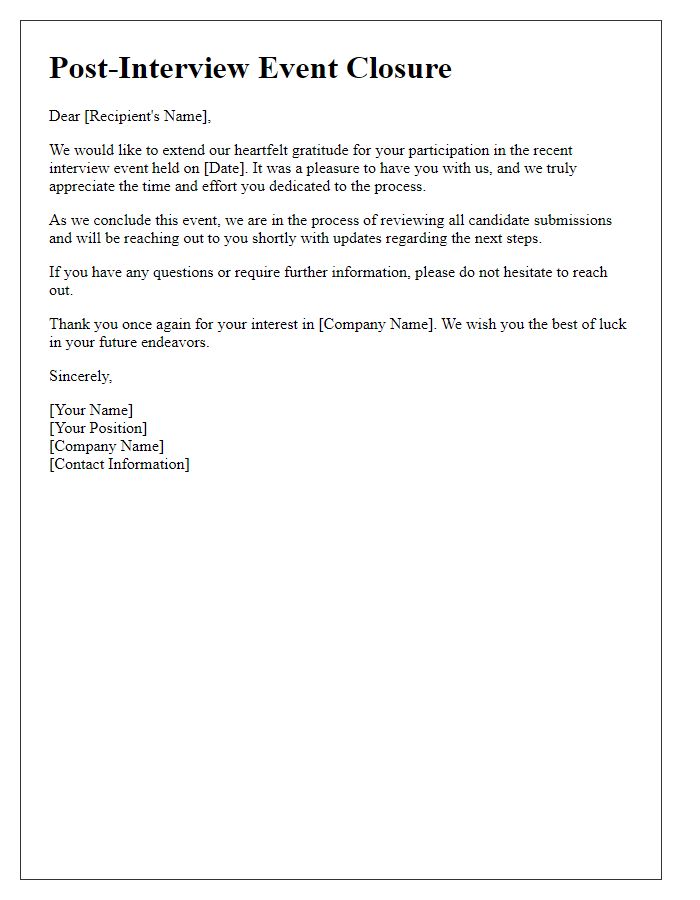
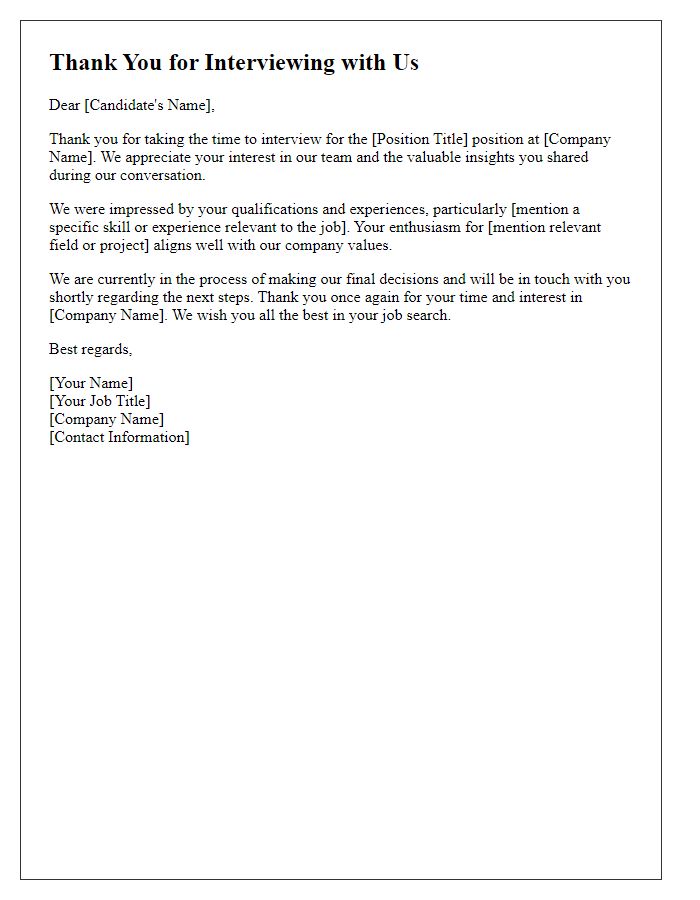
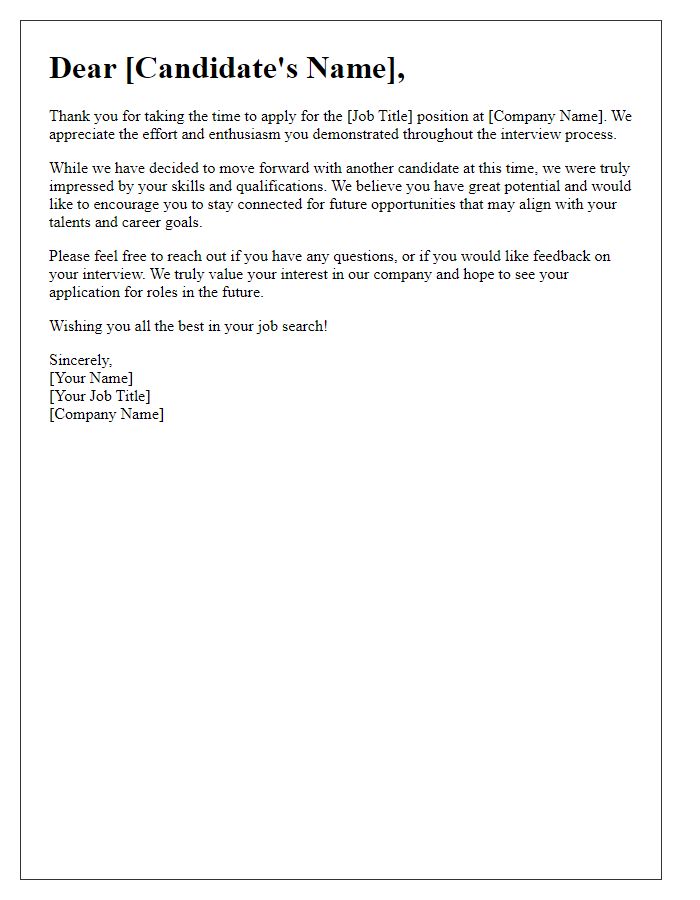

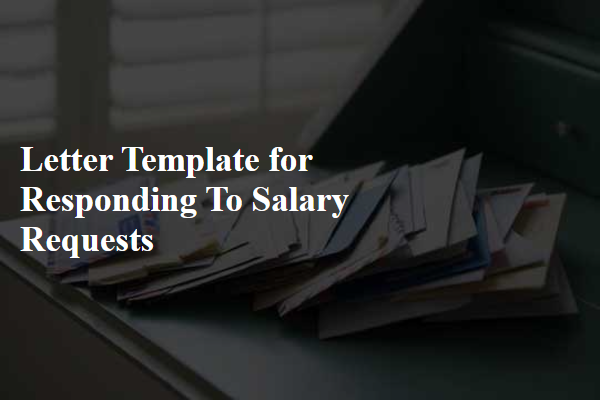
Comments